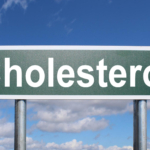4 Hormone-Altering Chemicals and How to Avoid Them
Watch out for these common chemicals that can interfere with your hormones and fertility
Every day our body is exposed to numerous harmful chemicals that can disrupt our hormonal system, cause cancer, damage the nervous system, and cause other harmful health effects. It is difficult to avoid these chemicals because they are found in food and drinking water, cosmetics, dust, furniture, cookware, clothing, food storage containers and packaging. In this blog, we will highlight 4 of the most common toxins that can disrupt your hormones and compromise your fertility. More importantly, we’ll tell you how to avoid them!
What are Endocrine Disruptors?
Endocrine disruptors are natural and synthetic chemicals that interfere with the body’s hormonal system. Endocrine disruptors can increase production of hormones, decrease production of hormones, and interfere with hormone signaling. These chemicals can cause infertility, early puberty, birth defects, obesity, diabetes, immune system problems, cardiovascular and respiratory problems, neurological issues and cancer. The developing fetus, babies and children are most vulnerable to chemical exposure as their physiological systems are still maturing. Endocrine disruptors are most notably found in food, water, and packaging, cosmetics, plastics, pesticides, pharmaceuticals, and in soil – thanks to pollution. Each of these sources may have trace amounts, however these sources bioaccumulate in the body. Bioaccumulation occurs when an organism absorbs a substance faster than it can break it down and excrete it. The body then stores the toxins, usually in fat tissue.
Common Hormone-Disrupting Toxins
Every day our body is exposed to numerous harmful chemicals that can disrupt our hormonal system, cause cancer, damage the nervous system, and cause other harmful health effects. It is difficult to avoid these chemicals because they are found in food and drinking water, cosmetics, dust, furniture, cookware, clothing, food storage containers and packaging. In this blog, we will highlight 4 of the most common toxins that can disrupt your hormones and compromise your fertility. More importantly, we’ll tell you how to avoid them!
4 Hormone Common Hormone-Disrupting Toxins
1.Bisphenol A (BPA) – is used to manufacture polycarbonate plastics. BPA epoxy resins are used in protective linings of food cans, dental sealants and other products. BPA imitates estrogen and contributes to breast and other cancers and reproductive problems. General exposure to BPA comes from eating food Learn more.
2. Phthalates – a group of chemicals found in consumer products, typically used to make products softer and more flexible. They are found in food packaging, cosmetics, soaps, fragrances, shampoos, hair spray, nail polish, building materials, vinyl flooring, paints, adhesives, plastic bags, modeling clay, and more! Phthalates have been implicated in reproductive damage, impede blood circulation, lower testosterone, and alter sexual development of children. Learn more.
3. Perfluorinated Chemicals (PFCs) – commonly used to make non-stick cookware but are also found in stain and water repellants for carpet, leather or upholstery. It is particularly in destructive and so appears as a pollutant in water, dust and on foods. PFCs have been found to affect thyroid hormone production, lower testosterone, and raise the type of estrogen associated with breast cancer. Learn more.
4. Organophosphate Pesticides – widely used in agriculture to target the nervous system of insects that eat the plants, these chemicals are sprayed directly onto the food sources. Studies link organophosphate pesticides to impaired fertility in both men and women. They specifically alter the way testosterone communicates with cells and lowers overall production of testosterone. Learn more.
How to AVOID these Chemicals
Eat Clean Food and Drink Clean Water
- Check the quality of your city’s water at www.watercheck.com.
- Buy a water filter for your home (refrigerator, sink and shower).
- Use reusable stainless steel or BPA-free bottles. Avoid beverages sold in plastic containers which can leech into the drink and pollute the environment.
- Buy organic produce and products when possible. At minimum, avoid foods on the EWG Dirty Dozen list (www.ewg.org/foodnews/dirty-dozen-php).
- Buy organic meats, dairy, and eggs. At minimum, avoid cows fed additional hormones or given antibiotics.
- Don’t heat food in plastic containers or bags. Instead, use glass, ceramic, or metal.
- Avoid hot foods served in plastic or Styrofoam containers and especially those marked with a #3 or #7.
- Don’t use non-stick pans or other products coated in water-repellant or stain-resistant chemicals.
Beauty Care Products & Household Cleaners
Look for fragrance-free or soaps and lotions scented with natural essential oils. Check your favorite personal care products on EWG’s Skin Deep site www.ewg.org/skindeep.
- Take your shoes off at the door when you go into your home and encourage your guests to do so.
- Change your filters regularly – furnace and air conditioners, vacuum cleaners, water dispensers, air purifier, clothes dryer, bathroom exhaust fans.
- Open windows on opposite sides of your house regularly to allow cross-air flow.
- Look for key words on cleaning products, such as “non-toxic”, “chlorine-free”, “fragrance free” or “no dyes”.
- Check your household cleaners for harmful toxins at www.ewg.org/guides/cleaners.
Learn more and get your own Guide to Endocrine Disruptors from the Environmental Working Group, a non-partisan group dedicated to protecting human health and the environment.




